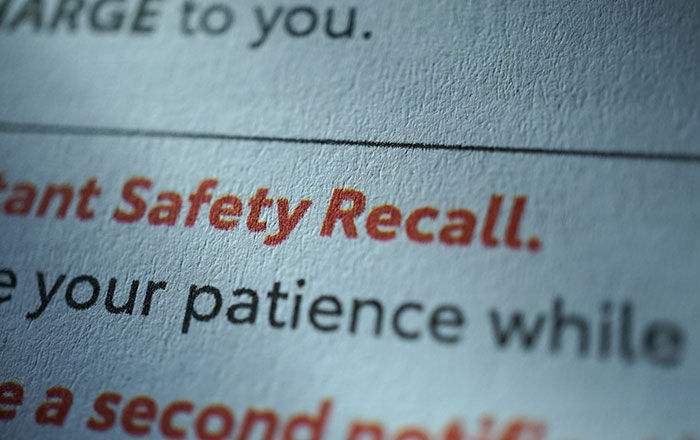The South Carolina workers’ compensation system is designed to protect employees who suffer injuries or illnesses in the workplace. Understanding the intricacies of the workers’ compensation claim process in the Palmetto State is crucial for both employers and employees. In this comprehensive guide, we’ll delve into the specific steps involved in filing a workers’ compensation claim in South Carolina, the unique aspects of the state’s system, common challenges faced by claimants, and practical tips to navigate the process smoothly.
Reporting the Injury in South Carolina
The first and foremost step in the workers’ compensation claim process in South Carolina is reporting the injury promptly. According to state regulations, employees must notify their employer about the workplace injury within 90 days of its occurrence. However, it is advisable to report the injury as soon as possible to avoid complications and ensure a smoother claims process.
Employer’s Responsibilities
Once an employee reports a workplace injury, the employer plays a crucial role in initiating the workers’ compensation claim process. In South Carolina, employers are required to provide the injured employee. The injured worker must seek initial medical treatment from one of these authorized physicians to ensure coverage by the workers’ compensation insurance.
Medical Treatment and Evaluations
Seeking timely medical treatment is paramount in the workers’ compensation process. After the initial visit to an approved healthcare provider, the injured employee may require ongoing medical care, rehabilitation, or specialized treatments. In South Carolina, the employer or the workers’ compensation insurance carrier may cover these medical expenses.
It is important to note that the injured employee may be required to attend medical evaluations arranged by the employer or the insurance carrier. These evaluations help assess the extent of the injury, determine the need for ongoing treatment, and establish the overall impact on the employee’s ability to work.
Filing the Workers’ Compensation Claim
In South Carolina, the formal process of filing a workers’ compensation claim involves submitting appropriate forms to the South Carolina Workers’ Compensation Commission (SCWCC). Completing the form accurately and providing detailed information about the injury, medical treatments received, and any lost wages is crucial for a successful claim. Failure to file the claim within the specified time frame can jeopardize the employee’s right to compensation.
Investigation and Adjudication
Upon receiving the workers’ compensation claim, the insurance company initiates an investigation into the validity of the claim. This involves reviewing medical records, statements from the injured employee and employer, and any other relevant evidence. The goal is to determine whether the injury is work-related and if the employee is entitled to benefits.
In some cases, disputes may arise between the injured worker, employer, and the insurance carrier regarding the validity of the claim or the extent of benefits. When disputes occur, the case may proceed to a hearing before the SCWCC, where an administrative law judge will make a determination based on the evidence presented.
Compensation and Benefits
If the workers’ compensation claim is approved, the injured employee may be eligible for various benefits, including:
- Medical Benefits: Coverage for reasonable and necessary medical expenses related to the workplace injury.
- Temporary Total Disability (TTD) Benefits: Financial assistance for employees unable to work while recovering from their injuries. TTD benefits are typically two-thirds of the employee’s average weekly wage, subject to maximum and minimum limits set by the state.
- Permanent Partial Disability (PPD) Benefits: Compensation for permanent impairments that do not completely prevent the employee from working but may impact their earning capacity.
- Permanent Total Disability (PTD) Benefits: Financial support for employees who are permanently unable to return to any gainful employment due to their workplace injury.
Appealing a Denied Claim
In some instances, the workers’ compensation claim may be denied by the employer or the insurance carrier. If this occurs, the injured employee has the right to appeal the decision. The appeal process involves presenting the case before the SCWCC for a hearing, where evidence can be submitted, and legal arguments can be presented.
Having legal representation during the appeals process can be beneficial, as it ensures that the injured worker’s rights are protected and increases the likelihood of a favorable outcome. Additionally, the appeals process provides an opportunity to address any discrepancies in the initial claim and present a compelling case for the entitlement to benefits.
Returning to Work
South Carolina’s workers’ compensation system encourages injured employees to return to work when medically feasible. Employers are required to make reasonable accommodations for employees recovering from workplace injuries, including modifying job duties or providing necessary tools and equipment.
If the injured employee is unable to return to their previous position due to permanent restrictions, the employer may need to provide alternative employment that aligns with the employee’s abilities and limitations.
Conclusion
Navigating the workers’ compensation claim process in South Carolina requires a thorough understanding of the specific regulations and procedures in place. From promptly reporting the injury to seeking medical treatment, filing the claim, and potentially appealing a denied claim, each step plays a crucial role in determining the success of the workers’ compensation case.
Employees and employers alike must be aware of their rights and responsibilities within the South Carolina workers’ compensation system to ensure a fair and efficient resolution of workplace injury claims. Seeking legal guidance when faced with challenges or disputes can further enhance the likelihood of a positive outcome, providing the injured worker with the support they need to recover and return to work.
Contact McWhirter, Bellinger & Associates today
Filing a workers’ compensation claim can seem daunting if you’ve never been through the process before. That’s why many people who have been injured at work hire an experienced personal injury attorney to guide them through the process and support them every step of the way.
McWhirter, Bellinger & Associates has been helping injured South Carolina workers get the compensation they’re rightfully owed for more than four decades. We are happy to lend our knowledge and experience to those who need it, and we do everything we can to assist our clients in achieving the most favorable outcomes.
We have a strong track record of helping our clients get the compensation they’re rightfully owed, and we know what each case is worth. We refuse to back down when insurance companies offer low-ball settlements or fail to take the full extent of our clients’ injuries into account.
Our law firm has seven offices across the Midlands of South Carolina, in Aiken, Camden, Columbia, Lexington, Newberry, Orangeburg, and Sumter. We offer free, no obligation case evaluations to injured workers, so give us a call today at 888-353-5513. It won’t cost you anything to see if we can help.®


















